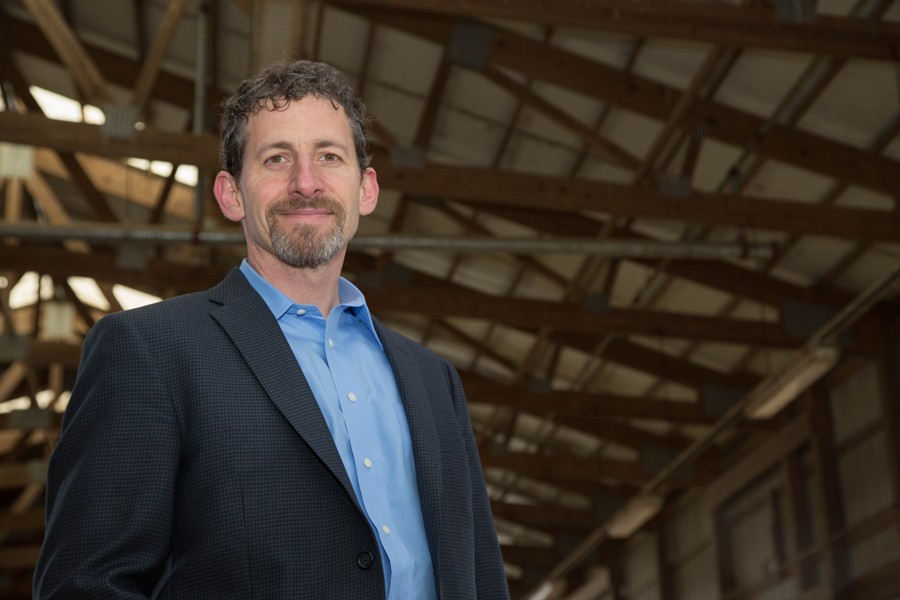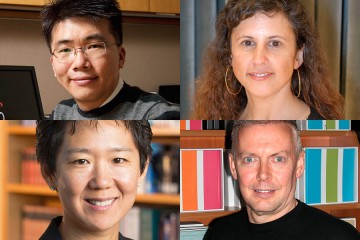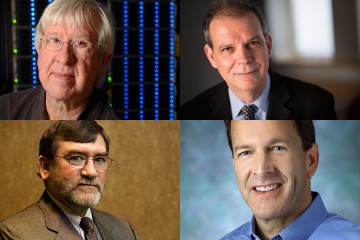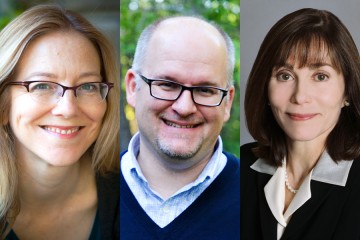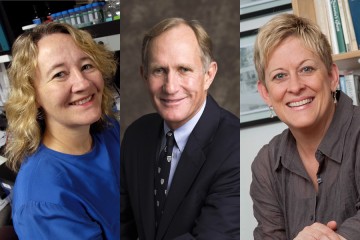Economist Paul Ferraro has been named a Bloomberg Distinguished Professor with appointments in the Carey Business School and the Whiting School of Engineering's Department of Geography and Environmental Engineering.
Ferraro's research focuses on building a credible evidence base about the environmental and social impacts of public and private programs. Combining the approaches of epidemiologists, with their naturally occurring data, and clinical trial health scientists, with their randomized controlled trials, Ferraro seeks to identify the causal links between the actions we take to improve our world and the impacts of those actions. For example, he has tried to quantify both the impacts of environmental regulations on the poor and the impacts of anti-poverty programs on the environment.
"Paul joins a group of extraordinary scholars who bring a depth and breadth of knowledge across disciplines to the pursuit of groundbreaking discovery at Johns Hopkins," says Provost Robert Lieberman. "His truly interdisciplinary work in environmental economics holds great promise for advancing knowledge and catalyzing collaboration between our schools of Engineering and Business and beyond."
At Johns Hopkins, Ferraro aims to work across divisions to clarify how societies can best address the increasing scarcity of clean water. As part of that effort, Ferraro has brought to Johns Hopkins the USDA Center for Behavioral and Experimental Agri-Environmental Research, which he co-directs with Kent Messer, a professor at the University of Delaware. By running randomized controlled trials within USDA programs, CBEAR seeks to improve the effectiveness of conservation programs intended to help both farmers and the environment.
"I came to Johns Hopkins because of the opportunity to work with world-class scientists from a range of fields, many working to put their science to good use in solving social problems," says Ferraro. "New ideas, new challenges, new resources. It's why others have come and stayed at Hopkins. I'm looking forward to my future here."
Starting his career as an ecologist, Ferraro came to economics after a chance encounter with an economist in the southeastern rainforests of Madagascar, where he was studying the ecology of the forest to aid biodiversity conservation efforts. "This economist claimed that environmental problems were not ecological problems but human behavior problems, and if I wanted to help solve the great environmental issues of our day, I should be studying human behavior," Ferraro says. "Determined to prove him wrong, I went back to graduate school in economics." Ferraro ended up being a convert. "I still think ecology is important, but now I make the same claim about environmental problems being human behavior problems to every natural and physical scientist I meet."
Because these research areas are multidisciplinary and applied, Ferraro collaborates with fellow experts from a range of social, natural, and physical science disciplines, as well as with practitioners in the field. He has published in economics, political science, ecology, and multidisciplinary science journals, and has been a Science Fellow at the World Wildlife Fund and a science adviser to the Global Environment Facility.
"Paul is an outstanding addition to the vibrant research faculty at the Carey Business School and will be a valuable collaborator with the Johns Hopkins research community," says Bernard Ferrari, dean of the Johns Hopkins Carey Business School. "His research illustrates the vital contributions of business and economics in addressing the world's challenges, which is at the core of our school's mission."
Ferraro joins Johns Hopkins from Georgia State University, where he was Regents' Professor of Economics at the Andrew Young School of Policy Studies. He earned his undergraduate and master's degrees from Duke University and a PhD in economics from Cornell University. Previous awards include the Humanitas Visiting Professor of Sustainability Studies from the University of Cambridge, the National Academy of Sciences Cozzarelli Prize, and a Fulbright Scholars award.
"As an economist with expertise in environmental policy and the integration of biophysical and economic information, Paul conducts important research that stretches and connects a breadth of academic disciplines. I cannot imagine a more fitting recipient of this honor than Paul," says Ed Schlesinger, the Benjamin T. Rome Dean of the Johns Hopkins Whiting School of Engineering.
The Bloomberg Distinguished Professorships are supported by a $350 million gift in January 2013 by Johns Hopkins alumnus and former New York City Mayor Michael R. Bloomberg. The majority of this gift is dedicated to creating 50 new interdisciplinary professorships, galvanizing people, resources, research, and educational opportunities to address major world problems. Among those challenges are issues related to individualized health care delivery, global health, the science of learning, and urban revitalization. To date, 15 Bloomberg Distinguished Professors have been appointed across Johns Hopkins University.




